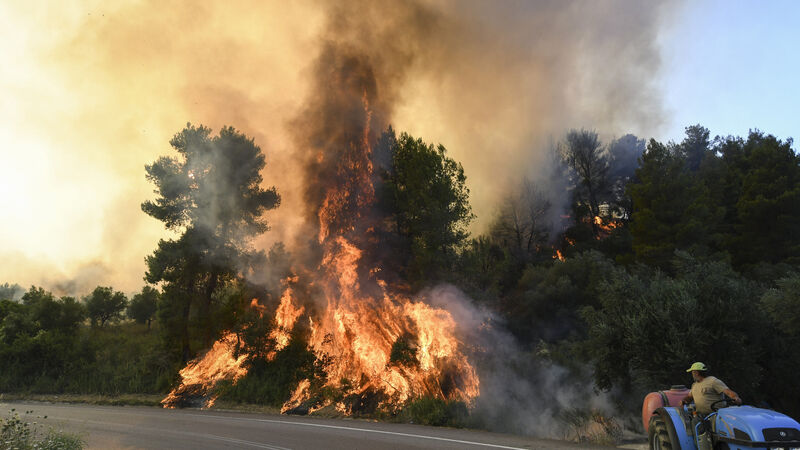Have we reached a tipping point — or is the tide beginning to turn on climate change?

A wildfire near a village in Greece last month. Picture: Giannis Spyrounis/ilialive.gr via AP)
At a time of rising fuel costs, and broiling heatwaves in Europe and the US, the UN secretary-general, Antόnio Guterres, described the record profits of oil and gas companies as immoral and urged governments to introduce a windfall tax, using the money to help those most in need.
The ‘grotesque greed’ of the fossil fuel companies and their financial backers had led to the combined profits of the largest energy companies, in the first quarter of the year, hitting almost $100bn.
CLIMATE & SUSTAINABILITY HUB
















